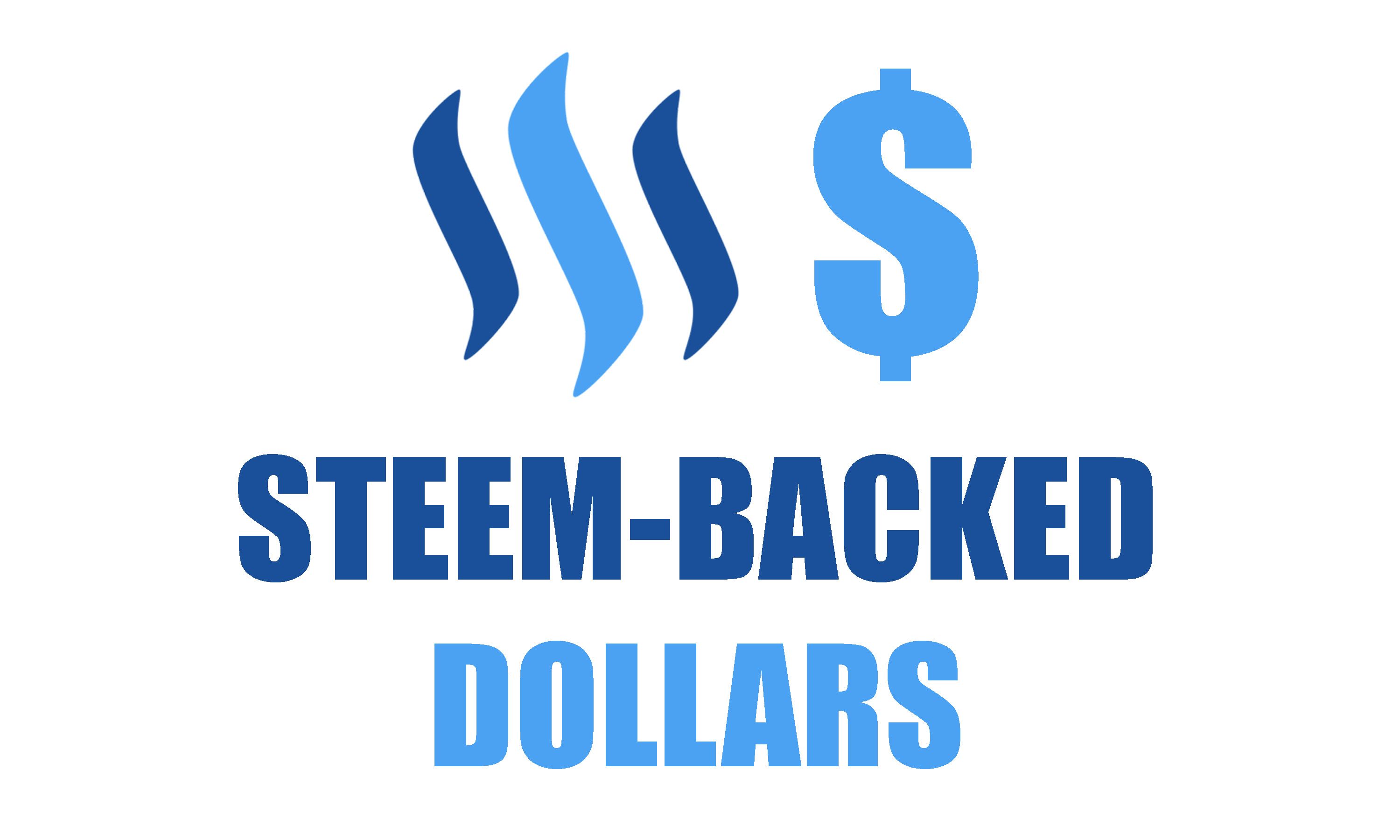Thoughts on STEEM-Backed Dollars and Holding the Peg

Should we be concerned about STEEM-Backed Dollars and the inconsistent peg, or is it too soon to worry?
Over the past five and a half weeks we have seen the SBD price trend upward after consistently holding the peg near $1.00 since mid-November. Although this seems like a great advantage for anyone acquiring or holding SBDs, some have argued that losing control of the peg could end up being detrimental for the system overall. After a few conversations with witnesses, such as @bacchist, @timcliff, @jesta, and @gtg, I'm still undecided on whether or not we should be concerned.
Looking back at the Steem Whitepaper (which is largely outdated at this point), there was considerable thought given to the concept of "Steem Dollars" (SMD). But it ultimately boils down to one quote for me:
It is our belief that these rules will give market participants confidence that they are unlikely to lose money by holding SMD purchased at a price of $1.00
In perfect market conditions, the idea is to have a stable debt instrument that can be bought and sold for one U.S. Dollar. The primary emphasis on stability in the case of such an instrument is to not lose value when investing in it. If you were to purchase one SBD at $1.00, then you should not lose more than an insignificant amount of value at any given time in the future when that SBD is sold.
What happens if SBD is valued at $2.00 in the future?
If you bought them at $1.00, then you should obviously rejoice at your 100% profit! If they are given to you as a reward at a presumed value of $1.00, then again, this should please you. You're earning double "face value" of your SBDs and can sell them for an instant 100% premium.
The question is: Are there long-term negative effects of such a premium and what should be done, if anything?
First, we have to acknowledge that a few things are likely happening to cause the price of SBDs to increase steadily like they have been.
- Demand for SBDs is outpacing creation.
- There is a lack of SBD liquidity in the markets.
- The individuals/bots responsible for maintaining the peg are not performing their duties, are performing them improperly, or they simply cannot overcome the supply/demand and liquidity issues.
If the problem is either of the first two - or both - then the solution would be to increase the supply and incentivize selling on the open market in order to put pressure on prices and help to drive them back down. With the price of STEEM rising over the past couple of months, SBD creation has been on the rise. However, the price of SBDs has also steadily risen over the past month, despite more creation and distribution to content creators.
Whether or not we should be concerned about this rise in price depends on whether or not a higher price is actually harmful. Other than internal conversion rates being sub-optimal, there doesn't appear to be a negative impact on any particular aspect of the system or on the system overall. In light of that, any proposed solutions should be made with a long-term outlook for stabilizing the peg as opposed to a short-term reaction.
There have been a few solutions discussed that could help bring the peg back towards $1.00.
Right now, I do not believe that relatively high SBD prices pose an immediate concern. So, with that in mind, here are a few ideas that have been suggested.
- Implement a reverse conversion function in the Steem wallet (STEEM-to-SBD), as mentioned by @timcliff.
- Have witnesses set a higher bias, which would create and distribute more SBDs per post payout - a position supported by @bacchist and several witnesses.
- Do nothing, but continue monitoring prices and liquidity. (My current position.)
It should be noted that option 1 can be very easily manipulated and was seen as an avenue for abuse in the original whitepaper - and intentionally not created as a blockchain function.
If people could freely convert in both directions then traders could take advantage of the blockchains conversion rates by trading large volumes without changing the price. Traders who see a massive run up in price would convert to SMD at the high price (when it is most risky) and then convert back after the correction. The Steem protocol protects the community from this kind of abuse by only allowing people to convert from SMD to STEEM and not the other way around.
The blockchain decides how and when to create SMD and who should get it. This keeps the rate of SMD creation stable and removes most avenues of abuse.
Steem Whitepaper - Minimizing Abuse of Conversions, page 11
Is this a problem in need of an immediate solution? Is it necessary to hold the SBD peg at or near $1.00 at all times?
In my opinion, I don't think this is a serious issue right now. As long as SBD holders are able to sell the token for at least $1.00, then the peg "works." At prices above $1.00, buying SBDs carries much higher risk and should probably be avoided.
SBDs were intended to be a stable instrument that held the value of one U.S. Dollar. If it holds the value of more than one U.S. Dollar on free-market exchanges, then that's a positive sign for the STEEM currency and SBDs. It shows that there is confidence in and demand for the Steem currencies/assets. It's essentially an extension of credit to the Steem ecosystem, which is a positive sign.
However, these are just my views. I do believe that SBDs can play a huge role in a marketplace, even if we sometimes can't see their usefulness at the moment. But should we be concerned about the inability or unwillingness to hold a stable peg at $1.00? I'm curious to know what the rest of the community thinks...or even if this is something that is thought about in general.
**A Final Note on SBD Conversions
If you are not aware, it is not ideal to be converting your SBDs to STEEM. You will receive much less STEEM using the conversion function in your wallet than you would selling the SBDs through the exchange and purchasing STEEM. This will also put downward pressure on SBD prices and upward pressure on STEEM prices. If you wish to convert SBDS to STEEM, consider using the internal or external exchanges. It would be beneficial for yourself and both currency prices.

Up on this and also, ppl submitting 100% power up posts are missing an opportunity to convert earned SBDs to more Steem and to end up powering up ~33% more if SBD is 2 bucks.
What about the children ?

I just do a 50/50 split and sell that shit as soon as I get a good pile of it lol
Feels goooooood
Although it would be nice if it could maintain the dollar peg, at least a little more closely.
@shayne
I vacillate between freaking out and breathing into a small, brown paper bag or ignoring the ticking stream of index prices at the bottom of my screen.
Mostly because I just don't understand any of this.
That being said, I am absolutely grateful for your Real English opinions geared for true reading.
Srsly.
@ats-david, one of the things I don't see mentioned very often is that the SBD price imbalance started pretty much in tandem with the overall crypto markets starting to heat up and get frothy. Several of of the SBD price runups happened on uncharacteristically heavy volume. Leading me to believe that the "problem" may be due to neophyte traders jumping on the bandwagon and engaging in hysterical FOMO trading without having ANY idea what they are actually trading. They may even have thought they were buying Steem.
That would lead me to favor the "wait and see" option... if this current market correction chills things out a bit and SBD drops back towards parity, maybe that would tell us something. Understand that I am NOT an expert... however, it would seem to me that if we can establish that "Steem Dollars freak out when the crypto markets get frothy" there'd be a more solid ground to base any needs (or not) for adjustment mechanisms on.
While this post cleared up a few concepts that were fuzzy to me it also raised a few questions...
My understanding (which is questionable as I am fairly new to the cryptoshpere) is that the internal market has a trading price at almost half that of external markets for Steem (SBD to STEEM). Am I being deceived by posts of some bigwigs here?
What would the effects be with a 100% Steem Power post?Secondly, if this were to happen....
I hope my questions are clear and I don't sound like the complete n00b I am.
The listed price on the internal exchange roughly translates to the external exchanges if buying/selling SBDs and STEEM from your wallet, internally. However, the conversion function doesn't give you a premium like you would get on the external exchanges. You're still only getting approximately $1.00 of STEEM, despite the price being near $2.00.
None. When you do a 100% SP post, no SBDs are created. Don't do that. Take the SBDs as long as they are trading at such a high price. It's good for you and selling them is good for trying to maintain the $1.00 peg.
The fog has lifted....thanks for the info @ats-david!
@ats-david
I'm with you on this one cause actually had I not known @timcliff when I read his post about pegging it I was a bit shocked that he's proposing it and I thought - what happened to the free market? Let the market do its move - but knowing @timcliff always have good intent and consistently have shown that - maybe there's something I missed on that too intelligently written post.
As for pegging it - would it not make it almost like of that fiat money? Why peg it? Control? - why worry about the merchants having to keep watching the movement of the market - I thought .. but anyway these are all honest questions - there are many things that I still don't know of - so @timcliff I hope you don't get offended with these questions and enlighten us please. Thank you
One thing to keep in mind is that originally the rule that limited SBD conversions to 10% of the STEEM money supply didn't exist, so the system described in the white paper does not correspond to the system as it is today.
In the system as it existed then, with SBD already being for example 10% of the money supply, whales could potentially convert another 10%, and then if STEEM drops 75% (not even that huge a drop; we saw 95%+ last year), convert back, obtaining 80%! Obviously this is hugely unstable.
In the system as it exists today, if someone were to convert STEEM into SBD and produce a large amount of SBD, it would no longer be fully convertable into STEEM, either immediately or after a price drop. The whales in the above-described situation would end up with 50% less STEEM than they started with, obviously not a very attractive 'exploit'!
I think @timcliffs proposal bears consideration, but for now I think wait and see is okay. You mentioned that it has been 5 1/2 weeks of SBD overvaluation, but due to the effect of the hard fork, rewards (and therefore SBD supply) were minuscule for the first few weeks. It is only in the last two weeks or so with the reward pool stabilizing and the STEEM price increasing that we've seen more SBD produced. And even then it still takes time for people receive rewards and eventually decide to cash them out.
Would increasing the default payout to 75% SBD instead of 50% eventually put downside on the SBD price? Or am I thinking bass ackwards?
It could help by increasing the supply, but in my opinion, I think we still need to wait a little longer to see what the effect will be from the recent price spike and SBD creation. If prices are still high in a month or so, then we should probably start discussing the options. But even then, we would need to look at the market conditions in general to get an idea of what the causes are. If it's simply a matter of strong market trust/confidence instead of supply/liquidity, there's not much that can be done about it.
That SBD doesn't hold the peg almost at all during a price spike is a problem that could use addressing. There will always be price spikes. We shouldn't expect them to break a pegged asset.
That said, this issue started before the price spike, so it is more difficult to characterize the underlying causes.
I don't agree there. We can create a trillion SBD. It can always be a matter of supply if that's what it takes (though not exclusively that)
It could, but I think the idea of offering a higher SBD option (75% or 100%) to authors would be better. It would make the supply responsive to demand because people would tend to choose more SBD when SBD is above $1 and less SBD when it is below $1.
I never worked for the FOMC, but seems if they changed the default payout to 75% SBD and 25% SP (temporarily) , that might put added pressure on the SBD price. However like they are fond of saying at the Fed, sometimes market policy is like pushing on a string...
I think Option 3 is the best right now. I would like to see over a longer period of time if things stabilize around $2 or if the increase in many cryptos has lead to an increase in SBD price and then the price of SBD decreases back to the peg
Good post. There is definitely a good argument to be made about 'just leaving it alone' (for now) and I think you did a great job articulating it.
Just a few small things regarding the wording here. Users can use the internal market (or internal exchange - depending on what you want to call it) to exchange/trade SBD for STEEM. The internal market (as far as I know) is usually fairly close to market value, and is not tied/related to the peg. What users don't want to do is convert. This is the process that takes 3.5 days, and provides "approximately one USD worth of STEEM" based on the witness price feeds.
Yeah, my understanding was that you generally get better prices on the external exchanges. But I can change that. I don't want to scare people out of using the internal exchange entirely!
Internal or external is usually very close to equivalent in value. I would choose based on what you are trying to do. If you want to cash out SBD to fiat, go ahead and use external because you're going to need to go external to get to fiat anyway. If you want to use that SBD to get STEEM to use or power up, then use internal (fast, no fees, no risk of funds being lost due to exchange problems or transfer errors).
Either way, your advice to not convert under these conditions is the most important point. Not only does it hurt the user (who gets less) but it hurts the system since it takes SBD out of circulation.